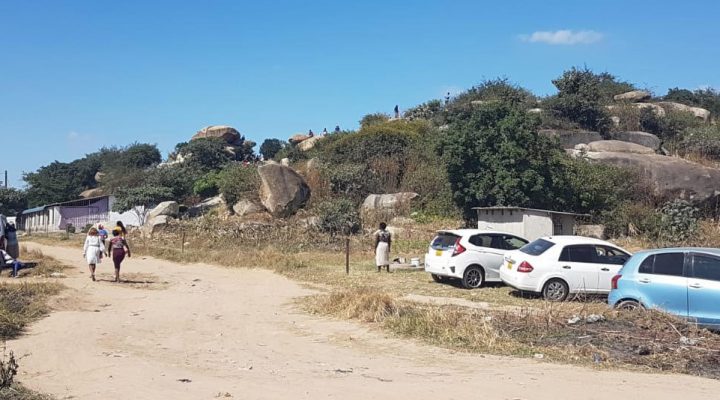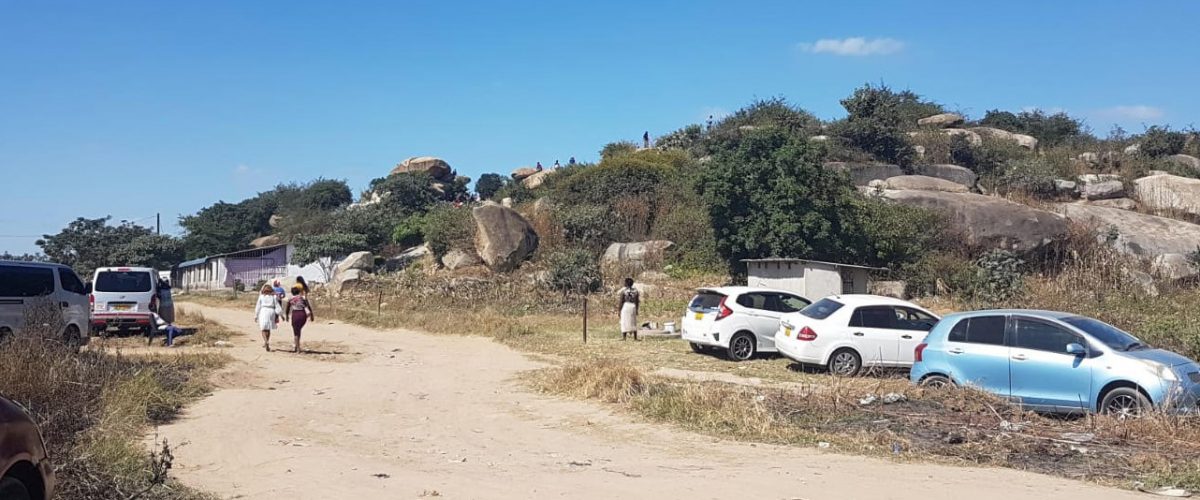Formal jobs with decent wages are scarce in Mozambique, one of the world’s poorest nations, a place where the once-dominant Catholic Church is losing ground to open-air nondenominational Pentecostals who specialize in the appealing Prosperity Gospel.
Conditions are dire for most residents in this Southeast African nation. Despite newly discovered liquefied natural gas riches worth an estimated $95 billion, 60% of the population are trapped in extreme poverty and getting by on an average of $1.90 a day.
“This material desperation has created a huge appetite among millions of the faithful in Mozambique to switch from the traditional Catholic faith and try open-air Pentecostal mass worship sessions which are now littered across the country,” explained Pastor Francesco Bana, a Presbyterian cleric in Beira, the country’s largest city.
Prosperity Gospel refers to a wave of Pentecostal doctrine that is gaining massive popularity across Southern African countries. A key feature of this movement is pastors and prophets promising unemployed masses miraculous riches, jobs and good health only if they offer money as “pledges to God,” in this case funding pastors’ and prophets’ lavish lifestyles. Evangelicalism and Pentecostalism are Africa’s fastest growing version of Christianity and in Mozambique, the National Directorate of Religious Affairs reports evangelical Christians represent the fastest-growing religious group in the country.
“Around such open-air Pentecostal pilgrimage sites — mountains and hills — informal economies are springing up to serve worshippers who gather.”
“Around such open-air Pentecostal pilgrimage sites — mountains and hills — informal economies are springing up to serve worshippers who gather. By default, such informal economies do help the jobless earn incomes as car guards, taxis, even barbers,” Bana said.
At Daliyebo, one of the most popular hills sites outside the perimeters of Beira city where Pentecostal preachers dish out the Prosperity Gospel, thousands of nondenominational worshippers gather weekly and clogs streets with cars and buses.
“Most of the faithful coming here are former Catholics trying out the Pentecostal open-air shrines and this has created a huge job for us with houses nearby,” said 65-year-old grandma Patricia Soza.
The hills belong to no one, and no municipal license is required for preachers to lead outdoor sermons that attract thousands of congregants from all shades of Mozambique society.
It is at these hills that chronically poor and jobless Mozambique residents like Granny Soza charge 70 Meticais ($1 US) per every two hours to let worshippers park their cars in their yards. Other entrepreneurial cooks prepare meals, roasted bananas, jugs of tea and cold drinks to entice thousands of worshippers who stream up and down “prayer mountains” while unlicensed bus operators haggle for passengers when worshippers finish their prayers and fasting. And further up in the mountains and hills, nondenominational Pentecostal preachers (coming from various church sects or acting solo) aggressively lobby worshippers to “donate U.S. dollars to God” and advertisers run billboards to entice worshippers to pay for a private “miracles consultation.”
“It’s a double [economy] creating itself around Pentecostal so-called ‘prayer mountains’ across Mozambique,” explained Sister Angelina De Chalisi, a retired Catholic nun in Beira. “The first economy is nondenominational pastors aggressively haggling their audiences to pledge all sorts of finances to ‘God’ as offerings for ‘blessings.’ Then, of course, the second biggest informal economy is bakers, barbers, old grannies guarding worshippers’ cars, minibus taxis, and even carpet sellers selling ‘anointed mats’ for the preachers to walk on up the mountain route.
“That’s what happens when expected institutions in countries like Mozambique — like the state and the Catholic Church — fail to create prosperity and jobs,” the nun added. “Disgruntled citizens turn to … ‘prayer mountain’ sites for answers.”
Informal economies around mass church pilgrimages are growing in countries across Southern Africa but they were not a feature in the past when traditional conservative denominations like the Catholics or Anglicans used to hold sway over the local populations.
“It was very discouraged or frowned upon for, say, clothes sellers to congregate around a cathedral holding a Catholic mass and try to sell to worshippers,” said Francesco Bana, the Presbyterian cleric in Beira City, Mozambique. “But with open-air evangelical/Pentecostal outdoors gatherings, the church gatherings are lucrative business venues. You even see motorcycle sellers lining new wheels next to where pastors are preaching in case members might want to buy the motorcycles on the spot and ‘bless’ their pastors in front of thousands of worshippers.”
For her part, Granny Souza is pleased that prayer pilgrimage sites have created the first solid informal finances in her life — and she hardly cares about what exactly is being preached up the hills where thousands gather with wailing, whistling, ululating in deafening noises of prayers, testimonies or songs.
“I let 10 cars park in my yard and watch over them whilst the worshippers (owners) troop up the ‘prayer mountain.’ It’s the first real job for me in 15 years and the only source of livelihood,” she said.
Related articles:
As inflation hits, Africa’s largest indigenous church clings to a tea obsession
Africa’s freelance prophets are breaking free of denominations
In South Africa, an unholy trinity — televangelists, TV stations and cellular companies


